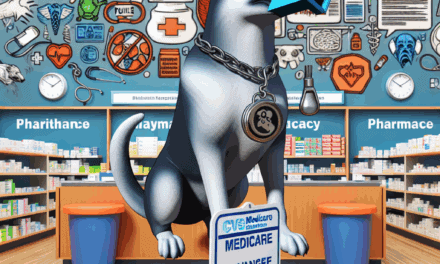Mount Nittany Health Agrees to $1.8M Settlement in Online Tracking Technology Case
In a significant legal development, Mount Nittany Health has agreed to a $1.8 million settlement concerning allegations related to the misuse of online tracking technology. This case highlights the growing concerns surrounding patient privacy, data security, and the ethical implications of using technology in healthcare. As healthcare organizations increasingly rely on digital tools, understanding the ramifications of such technologies becomes crucial. This article delves into the details of the case, the implications for healthcare providers, and the broader context of online tracking in the medical field.
Understanding the Case: Background and Allegations
The case against Mount Nittany Health emerged from allegations that the healthcare provider had improperly utilized online tracking technologies, specifically through the use of cookies and other tracking mechanisms on its website. These technologies are often employed to collect data on user behavior, preferences, and interactions with the website. However, the allegations suggested that Mount Nittany Health failed to adequately inform patients about the data being collected and how it would be used.
In the digital age, healthcare organizations are increasingly adopting online platforms to enhance patient engagement and streamline operations. However, this shift raises critical questions about patient consent and the ethical use of data. The lawsuit claimed that Mount Nittany Health’s practices violated both state and federal privacy laws, including the Health Insurance Portability and Accountability Act (HIPAA), which mandates strict guidelines for the handling of patient information.
As part of the settlement, Mount Nittany Health agreed to pay $1.8 million, which will be used to fund initiatives aimed at improving patient privacy and data security. This case serves as a cautionary tale for healthcare providers, emphasizing the importance of transparency and compliance with privacy regulations.
The Implications of Online Tracking in Healthcare
The use of online tracking technologies in healthcare has become increasingly prevalent, offering both benefits and challenges. While these technologies can enhance patient engagement and improve service delivery, they also pose significant risks to patient privacy. Understanding these implications is essential for healthcare providers navigating the digital landscape.
- Enhanced Patient Engagement: Online tracking can help healthcare organizations tailor their services to meet patient needs. By analyzing user behavior, providers can offer personalized content, reminders, and recommendations, ultimately improving patient satisfaction.
- Data-Driven Decision Making: Tracking technologies enable healthcare organizations to gather valuable insights into patient preferences and behaviors. This data can inform clinical decisions, resource allocation, and marketing strategies.
- Privacy Concerns: The collection of personal data raises significant privacy concerns. Patients may be unaware of the extent of data being collected and how it is used, leading to potential breaches of trust.
- Regulatory Compliance: Healthcare providers must navigate a complex landscape of regulations governing data privacy. Non-compliance can result in legal repercussions, as seen in the Mount Nittany Health case.
- Ethical Considerations: The ethical implications of using tracking technologies in healthcare are profound. Providers must balance the benefits of data collection with the need to respect patient autonomy and privacy.
As healthcare organizations continue to adopt online tracking technologies, they must prioritize patient privacy and ensure compliance with relevant regulations. Failure to do so can result in significant legal and reputational consequences.
Legal Framework Governing Patient Privacy
The legal landscape surrounding patient privacy is complex and multifaceted. Several key regulations govern how healthcare organizations must handle patient data, including HIPAA, the Health Information Technology for Economic and Clinical Health (HITECH) Act, and various state laws. Understanding these regulations is crucial for healthcare providers to ensure compliance and protect patient information.
HIPAA is perhaps the most well-known regulation governing patient privacy. Enacted in 1996, HIPAA establishes national standards for the protection of health information. It mandates that healthcare providers implement safeguards to protect patient data and provides patients with rights regarding their health information. Key provisions of HIPAA include:
- Privacy Rule: This rule establishes standards for the protection of individuals’ medical records and personal health information.
- Security Rule: This rule sets standards for safeguarding electronic health information, requiring healthcare organizations to implement administrative, physical, and technical safeguards.
- Enforcement Rule: This rule outlines the procedures for the investigation and enforcement of HIPAA violations, including potential penalties for non-compliance.
The HITECH Act, enacted in 2009, further strengthens HIPAA by promoting the adoption of electronic health records (EHRs) and enhancing the privacy and security protections for health information. It also introduces stricter penalties for violations and requires healthcare organizations to notify patients in the event of a data breach.
In addition to federal regulations, many states have enacted their own privacy laws that may impose additional requirements on healthcare providers. For example, California’s Consumer Privacy Act (CCPA) grants consumers greater control over their personal information and imposes strict obligations on businesses regarding data collection and usage.
Healthcare organizations must navigate this complex legal landscape to ensure compliance and protect patient privacy. Failure to adhere to these regulations can result in significant legal consequences, as demonstrated by the Mount Nittany Health case.
Impact of the Settlement on Mount Nittany Health
The $1.8 million settlement reached by Mount Nittany Health has far-reaching implications for the organization and the broader healthcare community. While the settlement resolves the immediate legal issues, it also serves as a wake-up call for healthcare providers regarding the importance of data privacy and compliance.
One of the most significant impacts of the settlement is the financial burden it places on Mount Nittany Health. The $1.8 million payout will likely affect the organization’s budget and resources, potentially diverting funds from other critical areas such as patient care and facility improvements. Additionally, the settlement may lead to increased scrutiny from regulators and the public, impacting the organization’s reputation.
In response to the settlement, Mount Nittany Health has committed to enhancing its data privacy practices and implementing measures to ensure compliance with relevant regulations. This may include:
- Improved Transparency: Mount Nittany Health may enhance its communication with patients regarding data collection practices, ensuring that patients are informed about how their information is used.
- Staff Training: The organization may invest in training programs for staff to ensure they understand the importance of data privacy and compliance with regulations.
- Technology Upgrades: Mount Nittany Health may evaluate and upgrade its online tracking technologies to ensure they align with best practices for data privacy.
- Regular Audits: The organization may implement regular audits of its data privacy practices to identify potential vulnerabilities and ensure compliance with regulations.
The settlement also serves as a cautionary tale for other healthcare organizations. As the use of online tracking technologies becomes more widespread, providers must prioritize patient privacy and ensure compliance with relevant regulations to avoid similar legal challenges.
Broader Implications for the Healthcare Industry
The Mount Nittany Health case is not an isolated incident; it reflects a broader trend in the healthcare industry regarding the use of online tracking technologies and the associated privacy concerns. As healthcare organizations increasingly adopt digital tools, they must navigate the complex landscape of data privacy and compliance.
Several key trends are emerging in the healthcare industry as a result of cases like Mount Nittany Health:
- Increased Regulatory Scrutiny: Regulatory bodies are becoming more vigilant in monitoring healthcare organizations’ data privacy practices. Providers can expect increased scrutiny and potential audits to ensure compliance with regulations.
- Growing Patient Awareness: Patients are becoming more aware of their rights regarding data privacy and are demanding greater transparency from healthcare providers. Organizations must adapt to this changing landscape by prioritizing patient communication and consent.
- Investment in Data Security: Healthcare organizations are increasingly investing in data security measures to protect patient information. This includes implementing advanced cybersecurity protocols and conducting regular risk assessments.
- Collaboration with Technology Partners: Healthcare providers are partnering with technology companies to develop solutions that prioritize patient privacy while still leveraging the benefits of online tracking technologies.
- Focus on Ethical Practices: The ethical implications of data collection are becoming a focal point for healthcare organizations. Providers must balance the benefits of data-driven decision-making with the need to respect patient autonomy and privacy.
As the healthcare industry continues to evolve, organizations must remain vigilant in addressing the challenges posed by online tracking technologies. By prioritizing patient privacy and compliance, healthcare providers can build trust with patients and avoid potential legal pitfalls.
Conclusion: Key Takeaways from the Mount Nittany Health Case
The $1.8 million settlement reached by Mount Nittany Health in the online tracking technology case serves as a critical reminder of the importance of patient privacy and compliance in the healthcare industry. As organizations increasingly rely on digital tools, they must navigate the complex landscape of data privacy regulations and ethical considerations.
Key takeaways from this case include:
- Prioritize Patient Privacy: Healthcare organizations must prioritize patient privacy and ensure transparency regarding data collection practices.
- Understand Regulatory Compliance: Providers must stay informed about relevant regulations and implement measures to ensure compliance to avoid legal repercussions.
- Invest in Data Security: Organizations should invest in data security measures to protect patient information and build trust with patients.
- Embrace Ethical Practices: The ethical implications of data collection must be considered, balancing the benefits of data-driven decision-making with respect for patient autonomy.
- Learn from Industry Trends: Healthcare organizations should stay informed about industry trends and adapt their practices to meet evolving patient expectations and regulatory requirements.
As the healthcare landscape continues to evolve, the lessons learned from the Mount Nittany Health case will be invaluable for organizations striving to navigate the complexities of online tracking technologies while prioritizing patient privacy and trust.




